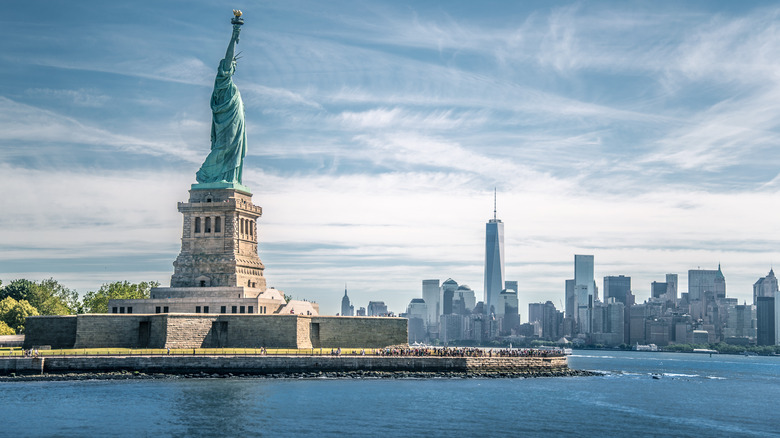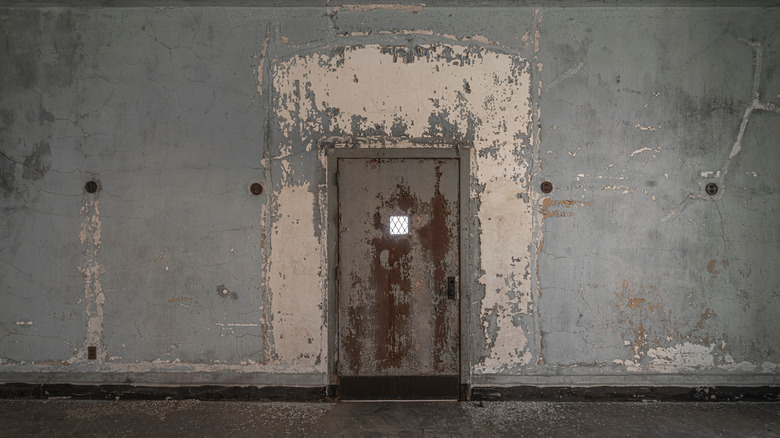The Surprising Way Ellis Island Was Used During World War I And World War II
We don't really think of Ellis Island as mysterious and haunting. Rather, in our history books, its existence has been idealized. For most American citizens, it is a symbol of resilience, migration, perhaps even freedom and diversity. It's been so romanticized that the Statue of Liberty website called it "a poetic symbol of the American Dream".
Even with the Statue of Liberty perched atop its lush landscape, greeting upward of 4 million annual visitors with her pointed crown and knowing smile (via Time Magazine), the shadowy past of Ellis Island runs as deep as the water surrounding it. What you might not know is that Ellis Island was once the site of gruesome pirate hangings and vicious cycles of deportation (via History). For all of the millions of immigrants welcomed in, millions more were turned away. It garnered such a reputation for immigrant rejection that many world travelers coined it the Isle of Tears (via Radio Free Europe). While some of those tears were shed by rejected immigrants, many more were shed by prisoners of war (via History).
Ellis Island was a prison during both world wars
History reports that the gleaming waters surrounding Ellis Island harbor many untold tales of war. During the tensions of World Wars I and II, suspicion rose against anyone of German ancestry residing in America. From 1917 until the finality of both wars, German-Americans fell under harsh surveillance. Many stood accused of secretly holding and/or teaching pro-Nazi views. To that end, 1,500 unfortunate souls were so mistrusted that they ended up behind bars.
Surprisingly, the location of their prison was none other than Ellis Island, the symbol of American freedom. With closed borders (via History) and locked jail cells, the island was quickly but quietly transformed into a bustling detention center. As anti-immigrant sentiment became a national theme, criminalization increased in the Big Apple and nationwide. The bittersweet irony of Ellis Island becoming a prison for suspected communists and so-called "heretics and malignants" (via PBS) deserves a larger space in the history books than it currently holds.

